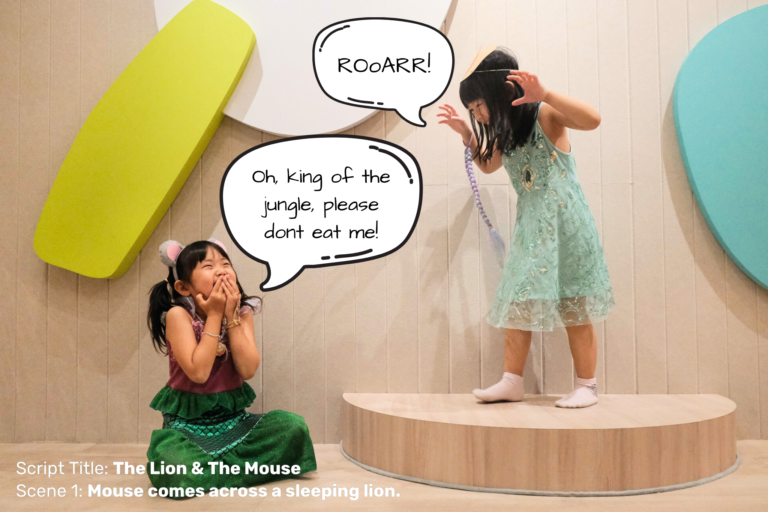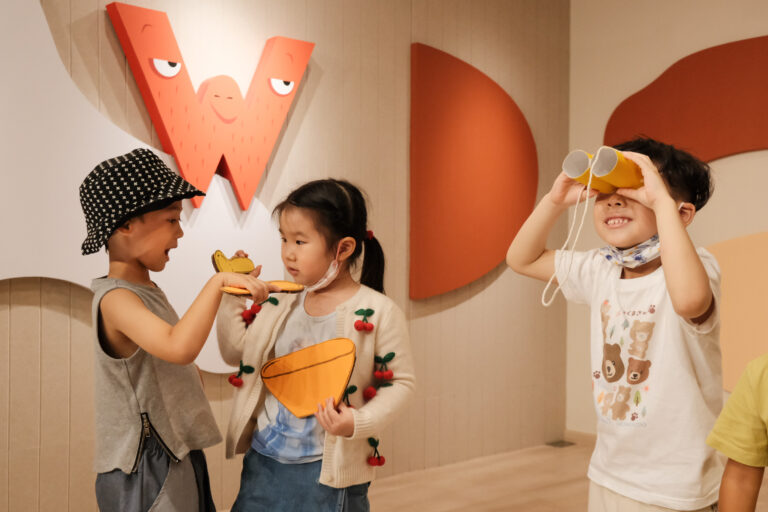
Boosting Shy Kids’ Confidence with Speech & Drama Activities

Is your child on the reserved side? Do they shy away from the spotlight and retreat into their shell when faced with social situations or the prospect of speaking in public? If so, don’t fret – you are not alone! Many parents face the challenge of helping their shy kids overcome their fears, build confidence, and conquer stage fright to shine on stage. Fortunately, there are effective ways to achieve this, and one of them is through speech and drama activities.
In this article, we will introduce some engaging games that can make this educational journey a whole lot of fun!
The power of speech and drama
Speech and drama activities offer a wide range of benefits that extend far beyond the stage. Here’s how your child can learn to build confidence through play;
- The Imagination game

Shy kids often have vivid imaginations that remain hidden, since their shyness keeps their creative juices from flowing. The ‘Imagination’ game is a perfect way to encourage them to build confidence and express their creativity.
How to play the ‘Imagination’ game:
- Sit or stand in a circle and choose a starting point for your imaginative journey.
- The first person says something like, “We are on a magical island.”
- The next person adds to the story with their imagination, such as, “Yes, and we have talking animals as our guides.”
- Continue around the circle, with each person adding to the story and building upon the previous person’s contribution.
Through this game, it helps make shy children understand how valuable their imagination is and how worthwhile it is to share their thoughts and ideas.
- Simon Says game
Another fantastic game that helps shy kids come out of their shells is the ‘Simon Says’ game. This classic game is fun, yes, but also a great way to improve communication and listening skills!
How to play ‘Simon Says’:
- One child or adult plays ‘Simon’ and gives commands to the rest of the group.
- The only directives that must be followed by the players are those that begin with “Simon says,” otherwise they are not required to do so.
- If Simon gives a command without saying “Simon says” first, anyone who follows the command is out.
- The last person remaining becomes the new Simon. Alternatively, the first person to follow the command when Simon gives a command without saying “Simon says” first will replace Simon.
The ‘Simon Says’ game encourages kids to follow instructions, listen carefully, and communicate effectively. It also teaches them the importance of clarity in communication, as Simon must be precise in his commands.
- I Spy game
‘I Spy’ is one of the most timeless and beloved games that graced many of our childhoods. This simple yet effective activity encourages verbal expression, attention to detail, and observation. It is an excellent tool for getting shy kids to open up and break the ice.
How to play ‘I Spy’:
- Choose an object in whichever setting you are in.
- Without revealing what the object is, say, “I spy with my little eye, something that is…” and give a clue related to the object’s function, shape, or colour.
- The other participants take turns guessing what the object is based on the clue.
- The person who guesses correctly gets to be the next ‘spy’.
This game encourages children to describe objects using words, fostering their communication skills and vocabulary. It also promotes active listening as children pay close attention to the clues given by others.
- Mini-performances

While games are an excellent way to start building confidence, engaging in drama-based activities takes the process to the next level. Drama allows kids to step into different roles, express themselves in a supportive and safe environment, and explore emotions.
Organising mini-performances at home is one effective way to boost a shy child’s confidence. This does not have to be complicated – something as simple as reenacting their favourite fairy tale, movie scene, or storybook plot should suffice.
How to hold a mini-performance:
- Choose a scene or a story to act out.
- Assign roles to friends or family members.
- Encourage your child to take on a role and rehearse their actions and lines.
- Set up a mini ‘stage’ in your living room using furniture or blankets.
- Enjoy the mini performance with an audience (even if it is just you and your family members!).
Performing in a comfortable and familiar setting allows shy kids to experience the thrill of being on stage without the pressure of a large audience.
- Drama classes

Enrolling your child in a speech and drama class is another valuable step in boosting their confidence. Speech and drama lessons in Singapore provide a supportive and structured environment where children can explore their creativity, gain confidence in public speaking, and learn acting skills.
In these classes, kids get the chance to perform in front of peers who share their passion. They receive constructive feedback from peers and instructors, helping them refine their communication and acting skills.
Moreover, speech and drama classes often include activities and exercises that target self-expression, stage presence, and voice projection. Over time, shy kids develop the self-assurance and skills needed to shine on stage.
Final thoughts
Helping reserved kids build confidence through speech and drama activities is a rewarding journey. Remember that every small step counts, and with your support, your shy child can transform into a capable and confident communicator!
Beyond communication skills, Wonderlit’s programmes also nurture critical thinking abilities, empowering your children to articulate their ideas with confidence and clarity. To learn more about our offerings, such as our speech and drama classes or public speaking course for kids, don’t hesitate to contact us or engage with our dedicated Programme Consultants at 6980-5670 via WhatsApp or call. Together, we can inspire your child to overcome their shyness and commence a lifelong journey of personal development and self-expression.
Recent Posts


How To Nurture Oral Language Development in Children

Story Builders: How Reading Shapes Writing In Kids

4 Fun Ways To Nurture Children’s Love For Performing

Importance of English Phonics for Young Learners

